Audi Q7 vs VW ID.7 - Differences and prices compared
Costs and Efficiency:
When it comes to price and running costs, the biggest differences usually appear. This is often where you see which car fits your budget better in the long run.
VW ID.7 has a significantly advantage in terms of price – it starts at 46400 £, while the Audi Q7 costs 69300 £. That’s a price difference of around 22967 £.
As for range, the VW ID.7 performs decisively better – achieving up to 708 km, about 624 km more than the Audi Q7.
Engine and Performance:
Power, torque and acceleration are the classic benchmarks for car enthusiasts – and here, some clear differences start to show.
When it comes to engine power, the Audi Q7 has a noticeable edge – offering 507 HP compared to 340 HP. That’s roughly 167 HP more horsepower.
In acceleration from 0 to 100 km/h, the Audi Q7 is evident quicker – completing the sprint in 4.10 s, while the VW ID.7 takes 5.40 s. That’s about 1.30 s faster.
In terms of top speed, the Audi Q7 performs evident better – reaching 250 km/h, while the VW ID.7 tops out at 180 km/h. The difference is around 70 km/h.
There’s also a difference in torque: Audi Q7 pulls a bit stronger with 770 Nm compared to 679 Nm. That’s about 91 Nm difference.
Space and Everyday Use:
Whether family car or daily driver – which one offers more room, flexibility and comfort?
Seats: Audi Q7 offers clearly perceptible more seating capacity – 7 vs 5.
In curb weight, Audi Q7 is barely noticeable lighter – 2055 kg compared to 2180 kg. The difference is around 125 kg.
In terms of boot space, the Audi Q7 offers decisively more room – 887 L compared to 532 L. That’s a difference of about 355 L.
In maximum load capacity, the Audi Q7 performs clearly perceptible better – up to 2255 L, which is about 669 L more than the VW ID.7.
When it comes to payload, Audi Q7 significantly takes the win – 885 kg compared to 465 kg. That’s a difference of about 420 kg.
Who wins the race?
The VW ID.7 proves to be slightly ahead and therefore becomes our DriveDuel Champion!
VW ID.7 is the better all-rounder in this comparison.
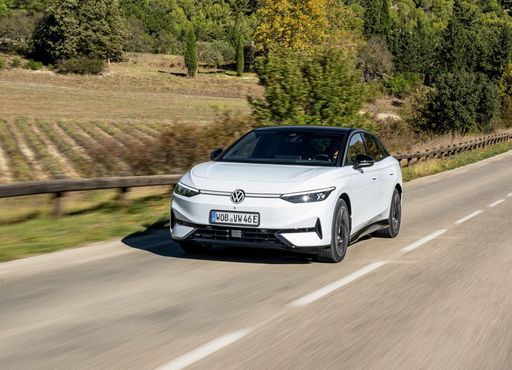 @ Volkswagen AG / VW Media
@ Volkswagen AG / VW Media
VW ID.7
Costs and Consumption
View detailed analysis
Engine and Performance
View detailed analysis
Dimensions and Body
View detailed analysis
Audi Q7
The Audi Q7 cuts an imposing figure on the road, balancing restrained luxury with a spacious, tech-rich cabin that makes long journeys feel effortless. It rides with confident composure and polished manners, so if you want a premium family SUV that feels grown-up and worth the badge, the Q7 is a persuasive choice — even the in-laws will be impressed.
details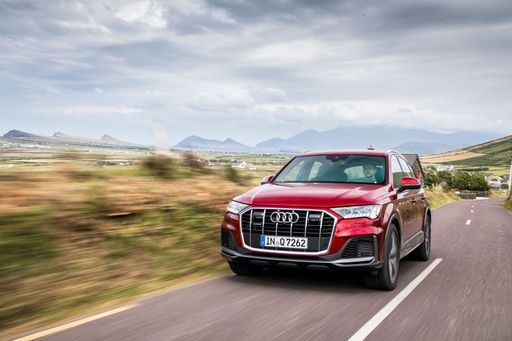 @ Audi AG
@ Audi AG
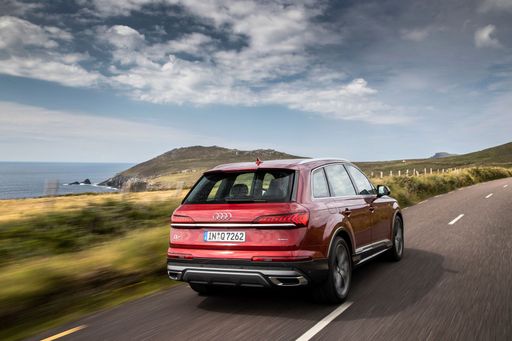 @ Audi AG
@ Audi AG
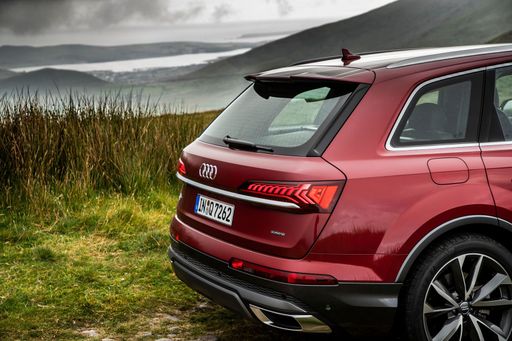 @ Audi AG
@ Audi AG
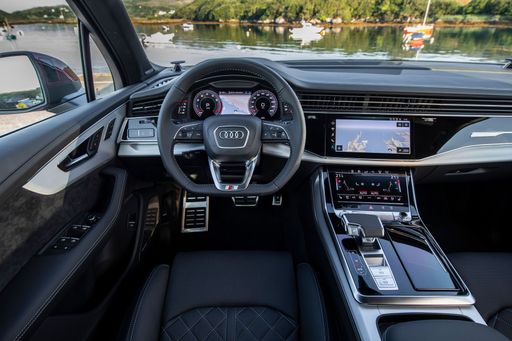 @ Audi AG
@ Audi AG
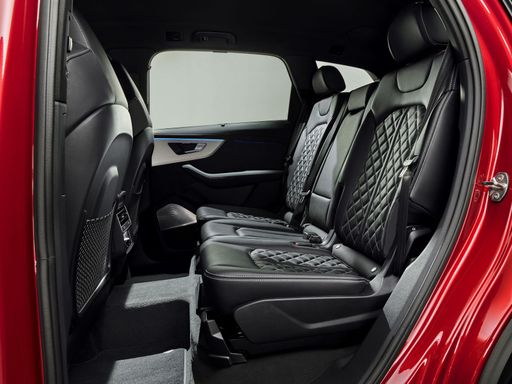 @ Audi AG
@ Audi AG
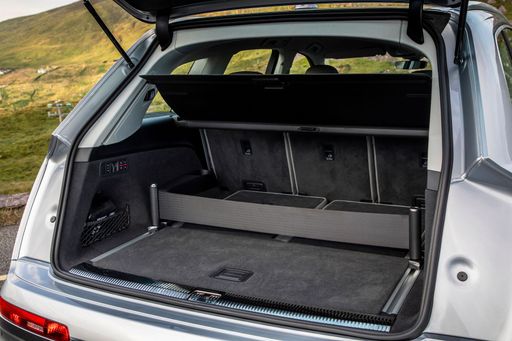 @ Audi AG
@ Audi AG
VW ID.7
VW ID.7 arrives as Volkswagen's electric grand tourer, pairing a low-slung, aerodynamic silhouette with a calm, understated interior that prioritizes comfort and space. It’s a sensible choice for buyers who want a relaxed, high-tech cruiser that covers motorway miles with poise rather than bravado.
details @ Volkswagen AG / VW Media
@ Volkswagen AG / VW Media
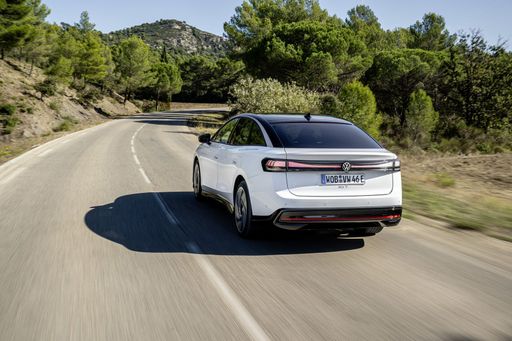 @ Volkswagen AG / VW Media
@ Volkswagen AG / VW Media
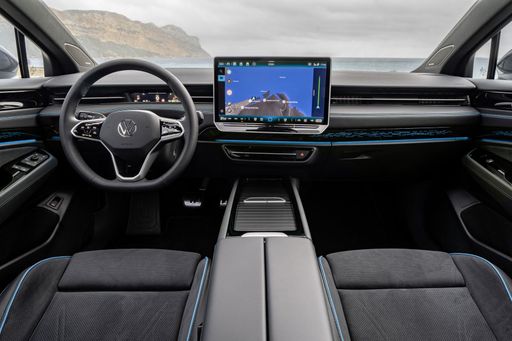 @ Volkswagen AG / VW Media
@ Volkswagen AG / VW Media
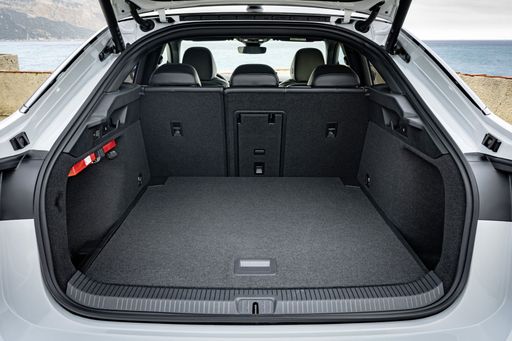 @ Volkswagen AG / VW Media
@ Volkswagen AG / VW Media
 @ Audi AG
@ Audi AG
|
 @ Volkswagen AG / VW Media
@ Volkswagen AG / VW Media
|
|
|
|
Costs and Consumption |
|
|---|---|
|
Price
69300 - 99000 £
|
Price
46400 - 54200 £
|
|
Consumption L/100km
1.2 - 11.9 L
|
Consumption L/100km
-
|
|
Consumption kWh/100km
-
|
Consumption kWh/100km
13.6 - 16.2 kWh
|
|
Electric Range
83 - 84 km
|
Electric Range
594 - 708 km
|
|
Battery Capacity
22 kWh
|
Battery Capacity
77 - 86 kWh
|
|
co2
28 - 271 g/km
|
co2
0 g/km
|
|
Fuel tank capacity
75 - 85 L
|
Fuel tank capacity
-
|
Dimensions and Body |
|
|---|---|
|
Body Type
SUV
|
Body Type
Hatchback
|
|
Seats
5 - 7
|
Seats
5
|
|
Doors
5
|
Doors
5
|
|
Curb weight
2055 - 2460 kg
|
Curb weight
2180 - 2325 kg
|
|
Trunk capacity
563 - 887 L
|
Trunk capacity
532 L
|
|
Length
5072 mm
|
Length
4961 mm
|
|
Width
1970 mm
|
Width
1862 mm
|
|
Height
1703 - 1735 mm
|
Height
1535 - 1536 mm
|
|
Max trunk capacity
1863 - 2255 L
|
Max trunk capacity
1586 L
|
|
Payload
640 - 885 kg
|
Payload
460 - 465 kg
|
Engine and Performance |
|
|---|---|
|
Engine Type
Petrol MHEV, Plugin Hybrid, Diesel MHEV, Petrol
|
Engine Type
Electric
|
|
Transmission
Automatic
|
Transmission
Automatic
|
|
Transmission Detail
Automatic Gearbox
|
Transmission Detail
Reduction Gearbox
|
|
Drive Type
All-Wheel Drive
|
Drive Type
Rear-Wheel Drive, All-Wheel Drive
|
|
Power HP
231 - 507 HP
|
Power HP
286 - 340 HP
|
|
Acceleration 0-100km/h
4.1 - 7.1 s
|
Acceleration 0-100km/h
5.4 - 6.6 s
|
|
Max Speed
226 - 250 km/h
|
Max Speed
180 km/h
|
|
Torque
500 - 770 Nm
|
Torque
545 - 679 Nm
|
|
Number of Cylinders
6 - 8
|
Number of Cylinders
-
|
|
Power kW
170 - 373 kW
|
Power kW
210 - 250 kW
|
|
Engine capacity
2967 - 3996 cm3
|
Engine capacity
-
|
General |
|
|---|---|
|
Model Year
2025
|
Model Year
2023 - 2024
|
|
CO2 Efficiency Class
G, B
|
CO2 Efficiency Class
A
|
|
Brand
Audi
|
Brand
VW
|
Is the Audi Q7 offered with different drivetrains?
Available configurations include All-Wheel Drive.
The prices and data displayed are estimates based on German list prices and may vary by country. This information is not legally binding.
